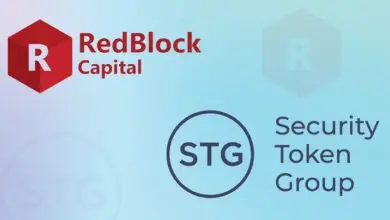The Essential Guide on How to Learn Private Equity

What is Private Equity? An introduction
Private Equity in simple terms is the funds that retail and institutional investors and other financial houses invest in acquiring public or private companies. The funds are usually used in new acquisitions, business expansions or improving a company’s books of accounts. Private equity investors can invest in acquiring a completely private or public company or a part of it depending on the returns expected. These investments are generally for a five to ten years time frame before the acquired property is sold off. An ideal return in private equity investment is $2.50 for every dollar financed.
Private equity funding, in most cases, is related to revenue generation through the financing of such companies that require reinvigoration or even embrace other best possible options to make such companies worthwhile.
As the horizon in the private equity industry is long term in comparison to the average stock investors, private equity funds apart from being used to making new acquisitions or improving balance sheets are also used in financing new technologies and helping with raising more working capital for such firms that require additional capital to meet the business demands.
Private equity investors usually look to sell the ownership of the acquired company in the long run at a massive yield either through an initial public offering or by selling it to a large public company.
If an entire public company is acquired by private equity funding, then the acquired public company is automatically delisted from the stock exchange. It is called “taking a company private.” This is done to save the company from falling stock prices and help with its re-growth strategies. Since the time frame in private equity returns is long term, unlike the stock market, private equity investors generally stand to gain from such acquisitions.
Private equity funding has a different perspective in relation to private equity firms. It usually refers to the equity investments done by private equity firms to raise capital. Here the equity investment is made by laying down a prospectus to interested investors, who invest accordingly.
If the capital funds are exhausted, the private equity firms can raise another round of capital through the same process or may have several funds raised at the same time.
Private equity firms solely invest in private firms, unlike venture capital firms that invest in public companies as well. Private equity firms could also finance their investment with debt and follow the process of the leveraged buyout.
There is another type of private equity fund called a search fund which has been gaining popularity. Here the investor instead of investing in the business invests in an entrepreneur who in turn searches for the best company to acquire and run. This is best suited for such companies which look for not only finances but also a new executive to turn the tides.
How does the Private Equity Fund work?
 Private Equity, as the name suggests, is a private fund and not listed on the public markets. To be a public company, there are many guidelines that need to be adhered to. However, many companies are unable to fulfil this requirement, or they are unwilling to go public. These companies rely on private markets to fund their corporate finance through individual and institutional investors.
Private Equity, as the name suggests, is a private fund and not listed on the public markets. To be a public company, there are many guidelines that need to be adhered to. However, many companies are unable to fulfil this requirement, or they are unwilling to go public. These companies rely on private markets to fund their corporate finance through individual and institutional investors.
To start with, private equity funds is a collaborative investment option used for making investments in various debt and equity portfolios. These funds are usually managed by private equity firms and have an investment horizon of 5 to 10 years with the possibility of annual appendages. One important aspect of private funds is that it is not open to every individual for subscription and is also not traded in stock markets. An individual investor should have the capacity to invest more than $200,000 to be considered as a potential investor in the US.
As said earlier, private equity funds are not available to everyone. The money is raised from high net worth individuals, investment banks and big finance houses that can afford to keep the funds invested for a long term. The funds collected for investments are managed by fund managers from private equity firms that raise the investment funds for future acquisition, providing capital to startups, investing in private companies, or raising new capital.
The various types of PE funds are:
 Leveraged Buyout – In this type of funding, the investment is made in big business houses along with leverage in the form of stake ownership to generate sizable revenue in the long run. The investment is always larger in comparison to venture capital. A leveraged buyout is the acquisition of a large firm by the acquirer through the process of borrowing large amounts of money in the form of loans and bonds to facilitate the purchase. The stakeholding in these acquired companies is usually to manage the funds of the acquired company in the long run and generate successful returns. Once the expected return on financing is achieved, the PE firm exits by diluting its stakes in the company. The leveraged buyout comprises 90 per cent debt to finance and 10 per cent equity.
Leveraged Buyout – In this type of funding, the investment is made in big business houses along with leverage in the form of stake ownership to generate sizable revenue in the long run. The investment is always larger in comparison to venture capital. A leveraged buyout is the acquisition of a large firm by the acquirer through the process of borrowing large amounts of money in the form of loans and bonds to facilitate the purchase. The stakeholding in these acquired companies is usually to manage the funds of the acquired company in the long run and generate successful returns. Once the expected return on financing is achieved, the PE firm exits by diluting its stakes in the company. The leveraged buyout comprises 90 per cent debt to finance and 10 per cent equity.
Venture Capital – The funding by the PE firms are made in small companies, primarily startups that have limited access to external financing. Venture capital funding is made in such business enterprises where there is sufficient scope for maximizing returns in the long term.
Real Estate – Private equity funds also invest in a variety of real estate properties. Such investing of funds follows specific guidelines. It includes core strategies from low-risk low-return principle to opportunistic strategies of high -risk high-return principles.
Growth Capital – Private equity funds put their money in growth capital funds of successful business houses that plan to expand or restructure their business or want to enter new sectors. Since these business houses are in no position to use their existing funds, they rely on the growth capital funds of the PE firms.
Fund of Funds – A funding strategy where the private equity funds are invested in other funds and not directly in security, bonds and stock is also known as “fund of funds.” This kind of funding has less risk for the investors as their money is invested in multiple fund strategies, thus diluting the risk appetite.
How do I get into private Equity?
 Many of you might think that the private equity world is a close guarded island where there are rights reserved for entry. However, the reality is different. Apart from ex-investment bankers, consultants and B-School graduates, even engineers, accountants, general graduates and undergraduates are considered for a serious and engaging career in the world of private Equity.
Many of you might think that the private equity world is a close guarded island where there are rights reserved for entry. However, the reality is different. Apart from ex-investment bankers, consultants and B-School graduates, even engineers, accountants, general graduates and undergraduates are considered for a serious and engaging career in the world of private Equity.
Let us follow some of the common paths to enter the private equity industry.
Be an Investment Banker first
This is the most common route for entering the world of private equity companies. A private equity firm would rarely hire someone without investment banking experience. If you are able to walk your way up in the financial world, you will be in an excellent position to be absorbed by a private equity firm. Experience of at least two years in investment banking is considered to be suitable for getting inducted in the private equity arena.
You could also be into Strategy Consulting
Investment banking is the most common route. However, if you are a strategy consultant, you would too have the option of joining the world of private equity investment. Since private equity positions require all-round skills in negotiations, management and networking, a strategy consultant is often considered to be an ideal candidate. Unlike investment bankers, strategy consultants do not have the skills required for finance modelling and other technical parameters. It is essential that these skills are acquired and demonstrated while one applies for a job in the portfolio companies.
Be an Analyst
Another possible path to enter the world of private Equity is by becoming an investment analyst. As an analyst, one would have to analyze potential investment areas, companies’ financial position and also possible deals. This would also include research coordination and document preparation for partners. Working as an analyst would help you to focus on a particular sector and thus make you a specialist in the said field. With experience, you can apply in any private equity firm.
The next few routes to enter the financial world of private Equity, though not very smooth, are still open paths for anyone who wishes to tread along.
From Graduate to Private Equity
A direct entry into the world of private Equity from college is like a fantasy. One would have to enter the world of financial modelling with a top investment bank, learn and gather the necessary experience and then plan the path to joining the companies in the private equity world. This is considered to be the best move. However, suppose you are really a very bright student with proven academic records. In that case, private equity firms can take notice and induct you directly into their company without you having the banking exposure.
Private equity companies usually do not want to spend time on fresh graduates by hiring and training them. They look for candidates who are already exposed to the financial world and would be capital to their firm from the initial day. So they look for candidates who have an exposure of a minimum of two years in the industry before they are inducted. Being an MBA graduate would give you an extra edge, then other graduates in this field of career building. However, most of the PE firms do not consider it as a must for entry into their world. Relevant experience is their only capital.
From Undergraduate to Private Equity
Difficult as it may sound, it is still not impossible. An undergraduate can enter the world of private Equity through extensive networking and cold calling. If one is determined to enter this world, then it is imperative that self-learning is initiated. One needs to learn the financial modelling and other prerequisites on their own. Many times it has been seen that undergraduates who have worked as interns in a PE firm or an investment bank, through a strong show of knowledge have been inducted directly into the company.
Even if you are able to manage an interview through cold calling, one would have to show their passion for investment. Many small private equity firms do consider hiring such candidates if the aspirant really shows promise.
Do remember that sufficient technical knowledge is required with a strong emphasis on financing, capital, private equity funds and investing. One should undergo a training session conducted by any institute or sit for the online training schedules to have that edge while aspiring to join the PE world.
From being an Engineer to Private Equity
While being an engineer and wishing to join the private equity industry is not a very far fetched thought, it is still tricky. It is ideal that one acquires a business degree along with the engineering tag. Some PE firms prefer this community if there is a business degree attached because of the ability of most engineers to handle immense work pressure.
An alternative option is joining the Venture Capital world
An essential part of private equity is venture capital. Here the financial investment is for providing capital to businesspeople venturing into startups. The point of difference between pure private Equity and venture capital are the acquired stakes which are limited. The compensation here is driven by the management charges and a percentage of return from the startups. Hence the involvement by any venture capital personnel in any startup is less than a private equity firm’s involvement. The main sectors that a typical venture capital firm delves into are biotech, tech and energy-based industry.
Investment Bankers, Strategy Consultants, Business Analysts though have an edge in joining the VC world; it is however not impossible for graduates and undergraduates to be a part of this industry which is a part of the PE world.
Whatever route you follow to enter the private equity world, it is always considered to be an advantage to make connections with the industry professionals. Since this world is very cut-throat, networking with people who are associated with private Equity or have contacts helps in reaping results. Even while applying for a job, an industry referral is always a bonus.
After having read about the routes to enter the private equity world, let us delve a little bit more to understand what needs to be studied for private equity
Every aspirant for a private equity job would have to go through the mandatory academic qualifications. A graduation degree with a major in finance, statistics, accounting or mathematics is the prerequisite. It is sporadic for a general graduate to enter the world of private Equity.
Though the majority of the companies prefer MBA as the required academic qualification, Certified Financial Analysis (CFA) as a postgraduate major is also considered noteworthy since it teaches the process of financial analysis. The professional certificates offered by accredited financial associations besides CFA, like CFP (Certified Financial Planner), CIMA (Certified Investment Management Analyst) or CIC (Chartered Investment Counselor) are equally good when it comes to assessing the academic qualification for a job aspirant.
Furthermore, specific skill sets are also required in the PE world. One has to have the analytical skills for preparing finance models and analyzing massive amounts of data and managerial and organizational skills for quick decision making, among other talents. One should also have the ability to operate comfortably with MS Excel and statistical software.
Many top PE companies also look for international skills like knowing a foreign language apart from English and also having the capacity to adapt to a foreign country across the globe. Your qualitative skills are also crucial in this environment since it is essential to assess how well one knows the fundamentals of private Equity and in what ways they are used in real-time.
Academic qualification, coupled with relevant experience and proper networking, would in all certainty help you to land with a cool job in private Equity. The most essential thing, however, is that one should be confident to take the leap and not worry about failures. Unless you try, you shall never succeed.



